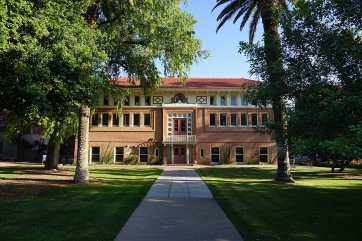As the United States place greater emphasis on science, technology, engineering and mathematics education, schools are looking for ways to improve student learning and retention in science.
Researchers Kate Davis and Greg Cowther from the University of Washington suggest that music may be the answer for some kids in their study "Sing about Science: Leveraging the Power of Music to Improve Science Education."
"It makes sense that we shouldn't teach all kids in the same way; we should individualize," Davis, an assistant professor in the University of Washington's Information School, said in a statement. "We need to provide multiple entry points in all subject matters. Music is a different entry point into scientific concepts."
For the study, researchers set up laptop computers at five science-related outreach events in Washington State. Most targeted students in grades K-12, but adults also participated. Participants in the study ranged from 3 to 76 years old, with a median age of 12. Each person sat in front of a laptop and selected a science-based music video to watch.
One video is titled "Fossil Rock Anthem," and is a parody of the hip-hop song "Party Rock Anthem." It shows a dancing archaeologist, graphics of fossils and ground striations and continental plates drifting. It's a catchy tune with fun, colorful graphics.
Study participants took a pre-video quiz of four questions related to information in the video, plus a bonus question not covered by the video. They also took a post-video quiz that included the same content and confidence questions.
In two-thirds of the music videos (10 out of 15), participants had more correct answers after watching the videos. Quiz scores rose by an average of one more correct answer after watching the videos. The lyrics-only music videos were as beneficial to improving quiz scores as the visually-rich videos.
"We're not saying this is the only way you should teach science, it's just a different way," Davis said. "We're hoping it can engage a broader array of students, to help them find success and create identities as science learners."
Their findings will be presented on Friday April 4 at the American Educational Research Association's annual conference.








